Who you callin’ a bitch?
You gotta let ‘em know,
you ain’t a bitch or a hoe
GENERE: MUSICALE, STORICO
SEASON 2
EPISODE 7
PARENTAL ADVISORY: SEXUALLY EXPLICIT CONTENT
I'm Mary Blige and you just ain't runnin' up in me
I need a man who's lookin' out with some security
So come correct with some respect and then we will see
So if you with it, the drop the seven digits
And I might just give you a call
If you ain't with it, then don't waste you time at all
So what's the 411, hun?
"What's the 411?", l'album di debutto della cantante statunitense Mary J. Blige, pubblicato nel 1992, è considerato il pioniere del femminismo hip-hop.
Il grande successo del disco, che per la prima volta fondeva soul e hip hop, ha consentito l'ingresso della Blige in un'arena musicale quasi interamente dominata da uomini.
"Diverse influenze musicali hanno innescato un'innovazione sonora che ha generato uno spazio unico per la narrazione delle donne afroamericane e le (ri) articolazioni narrative dell'amore e della femminilità nera contemporanea" (Treva B. Lindsey).
A Muslim sleeping with the gin
Now that was the sin that did Jezebel in
Who you gon' tell when the reprocussions spin
Showing off your ass 'cause you're thinking it's a trend
Girlfriend, let me break it down for you again
You know I only say it 'cause I'm truly genuine
Don't be a hard rock when you really are a gem
Baby girl, respect is just a minimum
Niggas fucked up and you still defending 'em
Now Lauryn is only human
Don't think I haven't been through the same predicament
Let it sit inside your head like a million women in Philly, Penn.
It's silly when girls sell their soul because it's in
Con le vendite da record dell'album neo-soul "The Miseducation of Lauryn Hill" e la vittoria di cinque Grammy Awards, nel 1998 Lauryn Hill è diventata un simbolo del femminismo hip-hop.
La Hill dimostra che un'artista donna di colore può usare il suo cervello piuttosto che il suo corpo per raggiungere le cime delle classifiche.
Il singolo "Doo Wop (That Thing)", il primo scritto, prodotto e registrato da una sola artista donna, dopo "Foolish Beat" di Debbie Gibson del 1988, a raggiungere il numero uno negli Stati Uniti, invita gli uomini e le donne afroamericani a smettere di farsi la guerra e recuperare dei valori più sani come la religione e la famiglia.
"Il sesso è bello, ma è solo una parte della storia", ha dichiarato la Hill.
Joan Morgan ha coniato il termine "femminismo hip-hop" con il suo libro del 1999 "When Chickenheads Come Home to Roost: A Hip Hop Feminist Breaks it Down".
La Morgan in realtà esprime tutte le ambiguità e le contraddizioni dell'essere una femminista nera in una società patriarcale e misogina, in particolare nell'ambito della cultura hip hop che riafferma piuttosto che sfidare la misoginia, che lei chiama "fucking with the greys".
Il femminismo hip-hop, riconoscendo la natura problematica e misogina della cultura e dei suoi effetti formativi, si prefigge di dare potere alle donne di colore consentendo la partecipazione, la risposta e l'auto-identificazione.
"Il controllo sessuale e istituzionale e l'abuso delle donne è una componente cruciale dello sviluppo di un'identità maschile eterosessuale".
Sebbene uno stigma comune associa il rap a partire dagli anni '90 alla pornografia, Tricia Rose sostiene che attribuire l'ipersessualizzazione esclusivamente all'hip hop significa ignorare le norme sociali sessiste incorporate nella cultura dominante.
Who you callin’ a bitch?
You gotta let ‘em know, you ain’t a bitch or a hoe.
Storicamente, il razzismo e il sessismo hanno negato alle donne di colore il privilegio della definizione di sé.
Le prime artiste hip hop femminili hanno cominciato a sfidare l'uso sessista e misogino della parola "bitch" da parte dei rapper maschi, creando uno spazio dove portare le loro voci in primo piano e definirsi secondo i propri termini.
Con la sua canzone vincitrice del Grammy Award, "U.N.I.T.Y.", nel 1993 Queen Latifah lancia un forte messaggio pro-empowerment.
La parola "bitch" comincia ad essere ri-usata come eufemismo per "donna nera forte e indipendente", "una donna aggressiva o assertiva che sovverte il dominio patriarcale" (Cheryl Keyes).
Because my name is Roxanne-a, and I came to say
I'm rockin' to the beat-a, and I do it this way
I'm conceited, never beated, never heard of defeated
I'm rockin' to the beat-a, and you know it is-a me-a:
The R-O-X-A-N-N-E-a
And if you want to play a little game for me
Lemme show you what you can do, baby
'Cause with a twist of my cheek, and a twist of my wrist
I have all the guys droppin' down like this
A soli 14 anni, Roxanne Shanté esordisce nel 1989 con una risposta in rima alla canzone "Roxanne, Roxanne" del gruppo maschile UTFO / Full Force.
In "Roxanne's Revenge", Shanté insulta uno dei membri dell'UTFO rappando: "Non è molto carino e non sa come comportarsi sessualmente". Shanté punta audacemente il suo insulto al centro della mascolinità nera.
"Yo, come 'er, bitch."
"Nigger fuck you."
"No fuck you, bitch."
"Who you talkin' to?"
"Why you actin' like a bitch?"
"'Cause ya'll niggers ain't shit. If I was a dude, I'd tell you to suck my dick."
Le donne rapper si definiscono per lo più in relazione o in opposizione ai rapper maschi ma utilzzando stili femminili. Spesso si riferiscono a concorrenti o partner sessuali maschili in modo offensivo come "niggers", la controparte maschile di "bitch".
La revisione della parola "nigger" riflette, "un'identità collettiva plasmata dalla coscienza di classe, dallo spazio urbano, dalla repressione della polizia, dalla povertà e dalla costante minaccia di violenza interrazziale. L'identità del 'nigga' è di genere, classificata e codificata come maschile" (Robin Kelley).
I said, "You's a sucker!
Get your dirty mind out the gutter
You ain't gettin' paid, you ain't knockin' boots
You ain't treating me like no prostitute"
Then I walked away, he called me a teaser
You're on a mission, kid yo, he's a
Tramp (What'd ya call me?)
Nella canzone “Tramp” del 1987, le Salt-n-Pepa invitano le donne a diffidare degli uomini che "le spogliano con i bulbi oculari" e che "hanno sempre in mente il sesso".
Rivolgendo la parola "tramp", che sta per "donna promiscua", agli uomini, le Salt-n-Pepa re-indirizzano il discorso pubblico, sfidando il modo in cui le donne sono tipicamente rappresentate.
Tramp!
What you call me?
Tramp.
No you didn't!
La canzone sfrutta un campione dell'omonima canzone soul del 1967 di Otis Redding e Carla Thomas, in cui la Thomas si lamenta delle difficoltà della sua relazione con un maschio assente e traditore.
Le Salt-n-Pepa riprendonno il tema portando l'esempio di uomini disonesti contemporanei.
"Le Salt-n-Pepa forniscono al loro pubblico un riferimento alla storia delle lotte eterosessuali femminili nere" (Tricia Rose).
I break into a lyrical freestyle
Grab the mic, look into the crowd and see smiles
Cause they see a woman standing up on her own two
Sloppy slouching is something I won't do
Some think that we can't flow (can't flow)
Stereotypes, they got to go (got to go)
I'm a mess around and flip the scene into reverse
(With what?) With a little touch of "Ladies First"
Nel 1989 esce "All Hail the Queen", l'album di debutto di Queen Latifah.
Presi insieme, il video e il testo del singolo "Ladies First", con la partecipazione della rapper inglese Monie Love, sono una dichiarazione per l'unità, l'indipendenza e il potere delle donne nere.
The ladies will kick it, the rhyme it is wicked
Those who don’t know how to be pros get evicted
A woman can bear you, break you, take you
Now it’s time to rhyme, can you relate to
A sister dope enough to make you holler and scream?
Le due rapper creano uno spazio comune dialogando tra loro mentre celebrano la forza delle donne. Il loro rap è un inno all'emancipazione delle donne.
See, I'm the kind of bitch that loves to be fucked
Trimmed, tucked, stuffed, and sucked
Up in my ass, deep down in my throat
So we can get busy, but jimmy wear a raincoat
'Cause I'm a pump you up, cold split your clit
Then let you cum in my mouth while you suck my dick
Then I'm a turn you over, belly up bitch
And lick that ass right where you shit
Nel 1991 le B.W.P. (Bytches With Problems), un duo rap femminile composto da Lyndah McCaskill e Tanisha Michele Morgan, pubblicano l'album "The Bytches".
Divenute famose per i testi sessualmente espliciti sono state considerate la versione femminile dei 2 Live Crew.
Nel dirty/porno rap, e relativo video, "Two Minute Brother" recitano la parte della "gangsta bitch" che reclama un amante in grado di soddisfarla.
I gotta case for spittin' in a mother fuckers' face
Me and my ace, crunk calicos strapped to the waist
A hundred in the clit' blastin'
What cha'll motherfuckers eyein' me fo?
Alias Chyna White, Gangsta Boo on my right
And Mia X to my left, why why'all motherfuckers thugged up
44 bulldogs and tear the whole motherfuckin' club up
I sets motherfuckin' friends for bitches
Make 'em feel shit, real bitches recognize real shit
Only one bitch put it down like this
See this shiny ass shit on my wrist?
See them shiny ass shoes on my six?
And I know ya'll know them thug ass do to my clique
When it's beef, Na Na stash this heat for all why'all asses
My bitches roll them nats since gats is popular
We 5-7 droppin' ya
It ain't no limit for my three bitch mafia
I'm a mother fuckin' bitch
(With an attitude)
I'm a mother fuckin' bitch
(With an attitude)
Mia X, Gangsta Boo e Foxy Brown nel rap “BWA (Bitches With Attitude)”, tratto dall'album di Brown "China Doll" del 1999, versione femminile di "Real Niggaz Don't Die" di N.W.A., intrecciano storie in cui collegano l'identità della "cagna" alla strada e ad altre donne di colore.
Definiscono tale identità in termini di solidarietà di genere razziale, tra le giovani donne nere della classe lavoratrice urbana, creando "una comunità di donne immaginaria".
Foxy definisce il trio di donne la "mafia delle tre cagne". Ognuna racconta a turno una storia che illustra la durezza della vita di strada. Foxy si vanta di "aver sputato in faccia a un figlio di puttana".
Mia X, che si definisce "una cagna di strada", colloca il suo personaggio accanto ad altre prostitute.
Gangsta Boo be wit it,
what the fuck you trying to do?
Your Power Ranger crew scared of us
We thought we told you,
we coming through tearing clubs up
Bitch in the reins yelling hit a motherfucker
And give her the damn thangs.
Gangsta Boo spiega quanto la sua banda di femmine sia temuta per le strade.
My bitches, my bitches that'll fuck out your brain
My bitches, my bitches that'll take the pain
My bitches, my bitches that'll play the game
Y'all niggas is weak, y'all niggas is lame
My bitches, my bitches that'll stay in school
My bitches, my bitches that can keep a job
My bitches, my bitches that can raise the kids
My bitches are strong my bitches will live
Nel rap “My Bitches”, tratto dal suo album di debutto del 1999 "Let There Be Eve… Ruff Ryders' First Lady", Eve rende omaggio a vari tipi di cagne, comprese quelle che “si prendono cura dei loro bambini", che "mantengono un lavoro" o che" contrabbandano droga" per i loro uomini.
Where my bitches at?
Where is all my bitches at?
This motherfucker right here
This for all ya'll motherfuckers
You a bitch, you a bitch, I'm a bitch
We all bitches
In this motherfucking game
Just be a bad bitch
Da Brat in "All My Bitches", tratto dall'album "Unrestricted", del 2000, assume il personaggio della cagna in comunità con con le sue ascoltatrici.
Si posiziona in relazione ad altre donne autonome, intelligenti e forti.
All my bitches
That live the hood life,
The good life,
My bitches
That don’t need
A nigga for shit
Si descrive come una cagna che "pensa ai soldi ogni giorno".
She's a bitch
When you say my name
Talk mo' junk but won't look my way
She's a bitch
See I got more cheese
So back on up while I roll up my sleeves
Consapevole delle connotazioni negative della parola e del suo uso dilagante da parte degli uomini come "epiteto sprezzante e generalizzato per le donne" (Judith McDonnell), anche Missy Elliott si re-impadronisce della parola.
Missy dice di essere una cagna solo a volte, quando è necessario per ottenere ciò che desidera, come diventare una donna autonoma di successo nell'industria del rap.
Nel singolo “She’s A Bitch”, dall'album "Da Real World" del 1999, Missy ridefinisce la cagna come una donna forte, potente, sicura di sé, all'interno di un'arena dominata dagli uomini.
"La franchezza sessuale di Missy è davvero una forma di empowerment, non si adatta ad alcuno standard stabilito dal mainstream, non può essere cooptata da un'industria musicale che promuove la mercificazione della carne" (Marc Weingarten).
Anche le espressioni sessuali più "freaky" nei rap di Missy sono molto diverse dalle "donne sfruttate che mancano di rispetto a se stesse e alla loro sessualità" (K. Good).
Izzy izzy ahh zizah zizah zizah
Hard bitches be talkin' like they rah rah
Blizzy blizzy blahzah blahzah blahzay
None of y'all fools ain't got shit on me
Izzy izzy ahh zizah zizah zizah
Hard bitches be talkin' like they rah rah
Blizzy blizzy blahzah blahzah blahzay
None of y'all fools ain't got shit on me
Marc Weingarten attribuisce a Missy e al suo partner produttore Timbaland il merito di aver "cambiato il paradigma del rap" con un "nuovo vocabolario di beat" che hanno avuto l'effetto di "liberare l'hip hop dalla camicia di forza del ritmo in 4/4".
Missy ha anche personalizzato il suo linguaggio attraverso l'uso dell'onomatopea.
Questa originalità ha spinto la critica a definire Missy una “icona culturale".
See, it's two type of bitches in the world
You got a broke bitch, you got a rich bitch
That would explain what I am and what my girl Missy is
We the rich motherfuckin' bi-o-tches!
That's right
And then you got a bitch like me
Who just stand above all bitches
That excludes my girl Missy, Mary
You know what I'm saying?
But ya'll know what the fuck I mean, heh
I'm the Queen Bitch, that's right motherfucker, what?
Lil Kim, autoproclamatasi "Queen Bitch", compare nel brano di Missy Elliot "Checkin' for You", contenuto nell'album "Da Real World", descrivendo se stessa e Missy Elliott come due "real motherfuckin' bitches".
È un appello a rompere la "cultura del silenzio" che circonda la sessualità delle donne nere, a sentirsi potenziate esprimendo liberamente la propria sessualità.
Hit hard like sledge-hammers, bitch with that platinum grammer
I am a diamond cluster hustler
Queen bitch, supreme bitch
Kill a nigga for my nigga by any means bitch
"Hard Core", l'album di debutto di Lil Kim, del 1996, ha segnato un punto di svolta per tutto il rap femminile.
L'approccio di Kim alla sessualità è schietto e sfacciato come mai in precedenza.
You ain't lickin' this,
you ain't stickin' this
I don't want dick tonight
Eat my pussy right
Ha mostrato alle altre rapper come parlare "sporco" senza inibizioni e per questo è stato salutato come esempio di hip hop femminista.
I used to be scared of the dick
Now I throw lips to the shit
Handle it like a real bitch
That's how many times I wanna cum, twenty-one
And another one, and another one, and another one
24 carats nigga
That's when I'm fuckin wit' the average nigga.
La traccia, “Big Mama Thang” fornisce un'idea chiara di quello che Lil' Kim pretende dai suoi uomini.
Anche "il negro medio" deve fornirle gioielli da 24 carati per meritare la sua attenzione.
Gimme all the rhythm and blues singers
Hen rock the shots of liquor, it makes me cum quicker
Rub between your belly like jelly
R. Kelly you think you ballin' but your body's callin'
Free fallin' and you roll in fuck the bumpin' and grindin'
Have you jumpin' and whinin' while I'm climbin'
I be doing groups like Troop
Body rockin' H-Town or Horace Brown
Watch out now
Babyface can pay the rent and cook me five meals
But momma got the whip appeal
What the deal on that Prince cat
He be lookin' fruity but you still can eat the booty
Brian McKnights tight Joe is kinda slow
Oh, what about D'Angelo
I want some of that brown sugar
Then watch this rap bitch bust all over ya nuts, like
Dreams, dreams, dreams of fucking an R&B dick
(Dreams of fucking an R&B dick)
Hen rock the shots of liquor, it makes me cum quicker
Rub between your belly like jelly
R. Kelly you think you ballin' but your body's callin'
Free fallin' and you roll in fuck the bumpin' and grindin'
Have you jumpin' and whinin' while I'm climbin'
I be doing groups like Troop
Body rockin' H-Town or Horace Brown
Watch out now
Babyface can pay the rent and cook me five meals
But momma got the whip appeal
What the deal on that Prince cat
He be lookin' fruity but you still can eat the booty
Brian McKnights tight Joe is kinda slow
Oh, what about D'Angelo
I want some of that brown sugar
Then watch this rap bitch bust all over ya nuts, like
Dreams, dreams, dreams of fucking an R&B dick
(Dreams of fucking an R&B dick)
In "Dreams", Lil Kim richiede specificatamente i servizi di R. Kelly, Babyface e tutti i "maschi R&B" disponibili.
Lo stile di Lil Kim, apertamente volgare, audace, esilarante, ribalta il paradigma hip hop centrato sulla ipermascolinità, mettendo al centro l'ipersessualità femminile
Secondo il Prof. Greg Thomas, "Hard Core" contesta direttamente la politica della rispettabilità "portando l'espressione creativa fuori dai confini del comportamento accettabile per le donne nere".
Masturbate, play with the pussy (Uh)
This nigga here bust off snorin' (Uh huh)
He straight, I knew this date would be borin' (Uh)
I wanna wake him up to do his duty (Do his duty)
Nigga use that tongue, clit to booty, clit to booty
You wanna steal the pussy like a thief (Like a thief)
Now kiss the lips without the teeth (Without the teeth)
So I could bust a nut or two come clean like Jeru
La "cagna suprema", "the bitch that stands above all bitches”, è stata spesso accusata di perpetuare la versione contemporanea dello stereotipo della donna "jezebel" (impudente).
Secondo Joan Morgan, il personaggio della "bad bitch" rappresenta un "uso improprio del sesso e del femminismo e una svalutazione degli uomini di colore".
Copiare ciò che fanno i "nigga" - fumare, bere, scopare e vantarsi - non significa ampliare la gamma di immagini che danno potere alle donne, piuttosto è una limitazione.
Secondo Tricia Rose, le opere delle rapper nere che mettono il proprio corpo sotto i riflettori hanno un effetto contraddittorio, "affermano la bellezza femminile nera ma conservano la logica dell'oggettificazione sessuale".
Scegliendo di partecipare al "video mercato della carne", si rendono complici del proprio sfruttamento.
La scrittrice, attivista e femminista bell hooks afferma che "equiparare il piacere alla materialità [rende] [il sesso] un oggetto da ricercare, prendere e acquisire con ogni mezzo necessario... la sessualità femminile nera contemporanea è in questo modo fittiziamente costruita esclusivamente come merce, servizio sessuale in cambio di denaro e potere, il piacere è secondario".
Niggas ain't shit, but hoes and tricks
Lick the pearl tongue, nigga, keep your dick
Get the fuck out after I cum
So I can hop in my Coup and make a quick run
Cause I'm a bank roll havin bitch
Mercedes Benz 6- double o havin bitch, I'm fabulous
And immaculate with nice curves
I game hers for the furs, and the Iceberg
You got nerves, old broke ass, not havin no doe ass
Slow ass, sleeping on my floor(flow?) ass, no yayo ass nigga
You fake bitch, you make women hate dick, cuz you ain't shit
Nel 2000 esce "Da Baddest Bitch", l'album di debuto della rapper Trina, pseudonimo di Katrina Laverne Taylor.
Craig Seymour di Entertainment Weekly scrive:
"Trina si posiziona coraggiosamente come la nuova regina dei racconti hip-hop in cui il sesso è uno sport di contatto giocato da generi rivali. I ritmi di ricambio dei bassi di Miami forniscono la fascia bassa adatta per le sue rime sotto la cintura... Trina è abile nel dire la verità come nel vendere fantasie".
Cuz I'm a nasty bitch, I leave a nigga dead broke
Snatch ya bread and cop a brand new coat
I'm da jazzy type
And I'll only let you eat it if you ask me right
My coochie mad tight
Well more juice than a grape when you peel the skin
But yo ain't no fun if your tongue ain't in
WHOO now this is where the madness start
So nigga fuck me with your tongue til ya lick my heart
I gotta body like a coke bottle watch me walk
So nigga work your mouth and don't talk
I'm the Diamond Princess duthces of all broads
Pussy stay tighter and wetter that all ya'lls
You nasty bitch you nasty (Uh huh)
You nasty bitch you nasty (UUUH huh)
You nasty bitch you nasty (What)
Trina you so nasty
Sulla scia di Lil Kim anche Trina assume l'identità della "bad bitch" chiaramente collegata al sesso, alla ricchezza e al potere.
Tutto il disco è una raccolta di racconti ipersessuali e ipermaterialistici che Trina usa per sfidare le comuni rappresentazioni delle donne di colore.
L'identità della cagna è associata all'immagine di una donna forte, indipendente, disinibita, che resiste alla dominazione maschile.
Who's bad? Who's bad?
I'm representin' for the bitches all eyes on your riches
No time for the little dicks you see the bigger the dick
The bigger the bank, the bigger the Benz
The better the chance to get close to his rich friends
See I fuck him in the living room
While his children ain't home
I make him eat it while my period on
A little nasty ho, red-bone but a classy ho
Young jazzy ho and don't be scared
If you're curious just ask me hoes
And yes dick sucking comes quite natural
I'm Da Baddest Bitch what?
Who's bad? Who's, who's bad?
Who's bad? Who's, who's bad?
Shit I'm the baddest bitch
Trina si autoproclama "la cagna più cattiva" sottolineando che nessuna è più abile di lei.
Dice di volere uomini ben dotati sia fisicamente che materialmente. L'accesso al denaro è ciò di cui ha bisogno per diventare più potente, per diventare "da baddest bitch".
Consiglia alle giovani donne "di stare al passo con il gioco".
All these bitches is my sons
And I'ma go and get some bibs for 'em
A couple formulas, little pretty lids on 'em
If I had a dick, I would pull it out and piss on 'em
Let me shake it off
L'adozione lirica del rap misogino maschile da parte delle "bad bitches", in combinazione con i messaggi di solidarietà femminile, è ormai diventato un copione sessuale di grande successo.
Vantandosi della sua ipersessualità, ma esprimendo ostilità nei confronti delle altre donne, Nicki Minaj ha assunto sia il ruolo della "gangsta bitch" che quello della "freak", entrambi sessualmente subdoli.
Minaj mette sempre bene in evidenza il suo prominente didietro auto-oggettificandosi ma al contempo conquistando potere in un universo dominato dai maschi.
Flirta con la linea sottile tra empowerment e oggettificazione sessuale.
"Quando si considerano le rapper di sesso femminile che usano la sessualità esplicita come parte della loro autodefinizione, la distinzione tra empowerment e sfruttamento può essere tenue" (Imani Perry).
"Tra i battiti, lo scuotimento del corpo e l'abbandono edonistico, c'è qualcosa di intrinsecamente poco femminista nel supportare una musica che riduce ripetutamente le donne a tette e culo e incoraggia regolarmente la prostituzione" (Joan Morgan).
BIBLIOGRAFIA
Collins, Patricia H. (1990). "Black Feminist Thought: Knowledge, Consciousness and the Politics of Empowerment". Hyman.
hooks, bell. (1992). "Black Looks: Race and Representation". Boston: South End Press; “Selling Hot Pussy Representations of Black Female Sexuality in the Cultural Marketplace”. In Conboy, Katy et al. (1997). "Writing on the Body: Female Embodiment and Feminist Theory". New York: Columbia University Press.
Rose, Tricia. (1994). "Black Noise: Rap Music and Black Culture in Contemporary America". Hanover, New Hampshire: University Press of New England.
Perry, Imani (1995). “It's My Thang and I'll Swing it the Way that I Feel!: Sexuality and Black Women Rappers”. In "Gender, Race, and Class in Media: A Text-Reader", edited by Gail Dines and Jean M. Humez. Thousand Oaks, California: Sage Publications.
Kelley, R. (1996). "Kickin’ Reality, Kickin’ Ballistics: Gangsta Rap and Postindustrial Los Angeles". In Perkins, W.E. (Ed.) "Droppin’ Science: Critical Essays on Rap Music and Hip Hop Culture". Philadelphia: Temple University Press.
Boyd, Todd (1997). "Am I Black Enough for You?: Popular Culture from the Hood and Beyond". Indiana Univ P.
Davis, Angela Y. (1998). "Blues Legacies and Black Feminism". Vintage Books.
Pough, Gwendolyn D. (2004). "Check It While I Wreck it: Black Womanhood, Hip Hop Culture and the Public Sphere". Boston: Northeastern University Press; Pough, Gwendolyn D. et al. (2007). "Home Girls Makes Some Noise: Hip-Hop Feminism Anthology". Mira Loma, California: Parker Publishing.
Sharpley-Whiting, T. Denean (2008). "Pimps Up, Ho’s Down: Hip Hop’s Hold on Young Black Women". NYU Press.
Yeagle, Anna (2013). "Bad Bitches, Jezebels, Hoes, Beasts, and Monsters: The Creative and Musical Agency of Nicki Minaj". Case Western Reserve University Department of Music.
Keyes, C.L. (1993). “We’re more than a novelty, boys: Strategies of female rappers in the rap music tradition". In Radner, J.N., "Feminist messages: Coding in Women’s Folk Culture". Urbana, IL: University of Illinois Press; (2002). "Daughters of the blues: Women, Race and Class Representation in Rap Music Performance". In "Rap music and street consciousness". Urbana: University of Illinois Press.
Guillory, Nichole Ann (2005). "Schoolin' Women: Hip Hop Pedagogies of Black Women Rappers". Louisiana State University and Agricultural and Mechanical College.
Kleinman, Sherryl, Ezzell, Matthew B., Frost, Corey A. (2009). "Reclaiming Critical Analysis: The Social Harms of 'Bitch'". Sociological Analysis 3 (1).
Lindsay, Melanie Marie (2016). "Who You Callin' a Bitch? A Content Analysis of the Images Used to Portray African American Women in Rap Music". California State University - San Bernardino.
Wald, Elijah (2012). "The Dozens: The History of Rap's Mama". Oxford Univ Pr.
Lindsey, Treva B. (2013). "If You Look in My Life: Love, Hip-Hop Soul, and Contemporary African American Womanhood". African American Review.
McDonnell, Judith (2008). "Rap Music: Its Role as an Agent of Change". Popular Music and Society, 16:3.
Good, K. (2001). "Feeling Bitchy". In Vibe, "Hip Hop Divas". New York: Three Rivers Press.
Weingarten, M. (2001). "Freaky Tales". Vibe, New York: Three Rivers Press.
Thomas, Greg (2009). "Hip-Hop Revolution in the Flesh: Power, Knowledge, and Pleasure in Lil’ Kim’s Lyricism". New York: Palgrave MacMillan.
Oware, Matthew (2007). "A 'Man's Woman'?: Contradictory Messages in the Songs of Female Rappers, 1992-2000". Journal of Black Studies.
Rebollo‐Gil, Guillermo, Moras, Amanda (2012). "Black Women and Black Men in Hip Hop Music: Misogyny, Violence and the Negotiation of (White‐Owned) Space". Journal of Popular Culture.
Layne, Asha (2014). "Now That’s a Bad Bitch!: The State of Women in Hip-Hop". hamptonthink.org.
TO BE CONTINUED


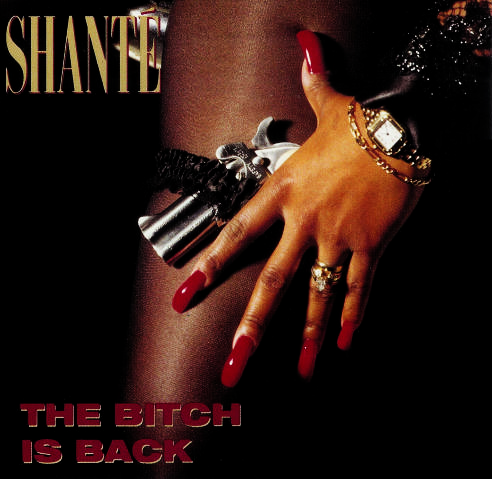

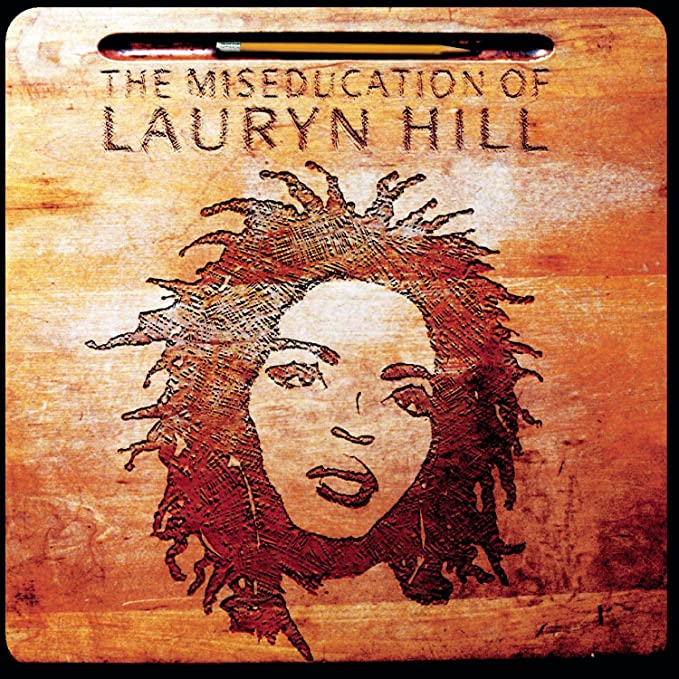

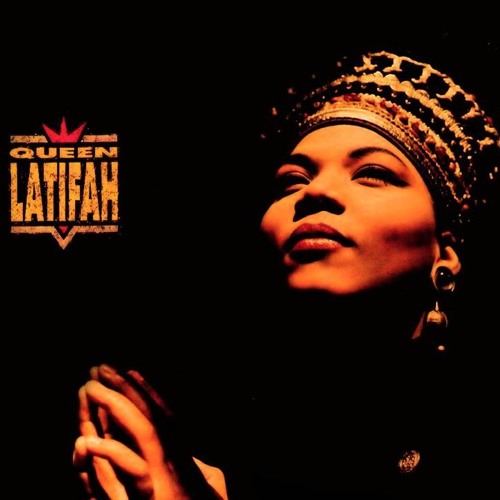

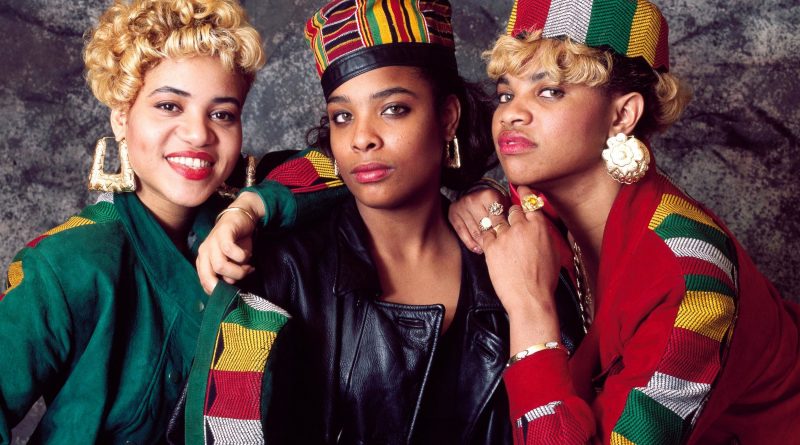
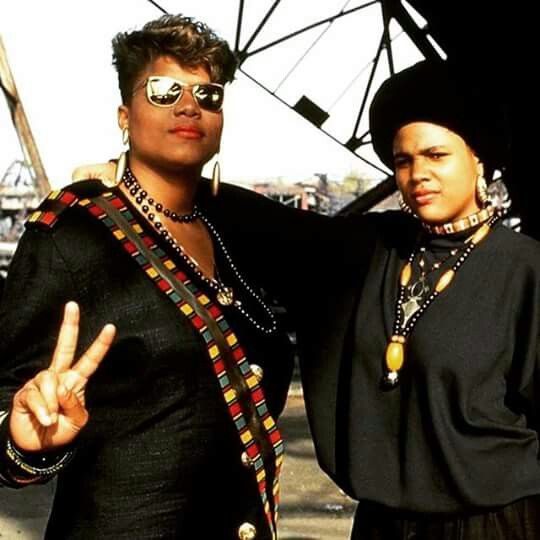
:format(jpeg):mode_rgb():quality(90)/discogs-images/R-723690-1402566396-3619.jpeg.jpg)



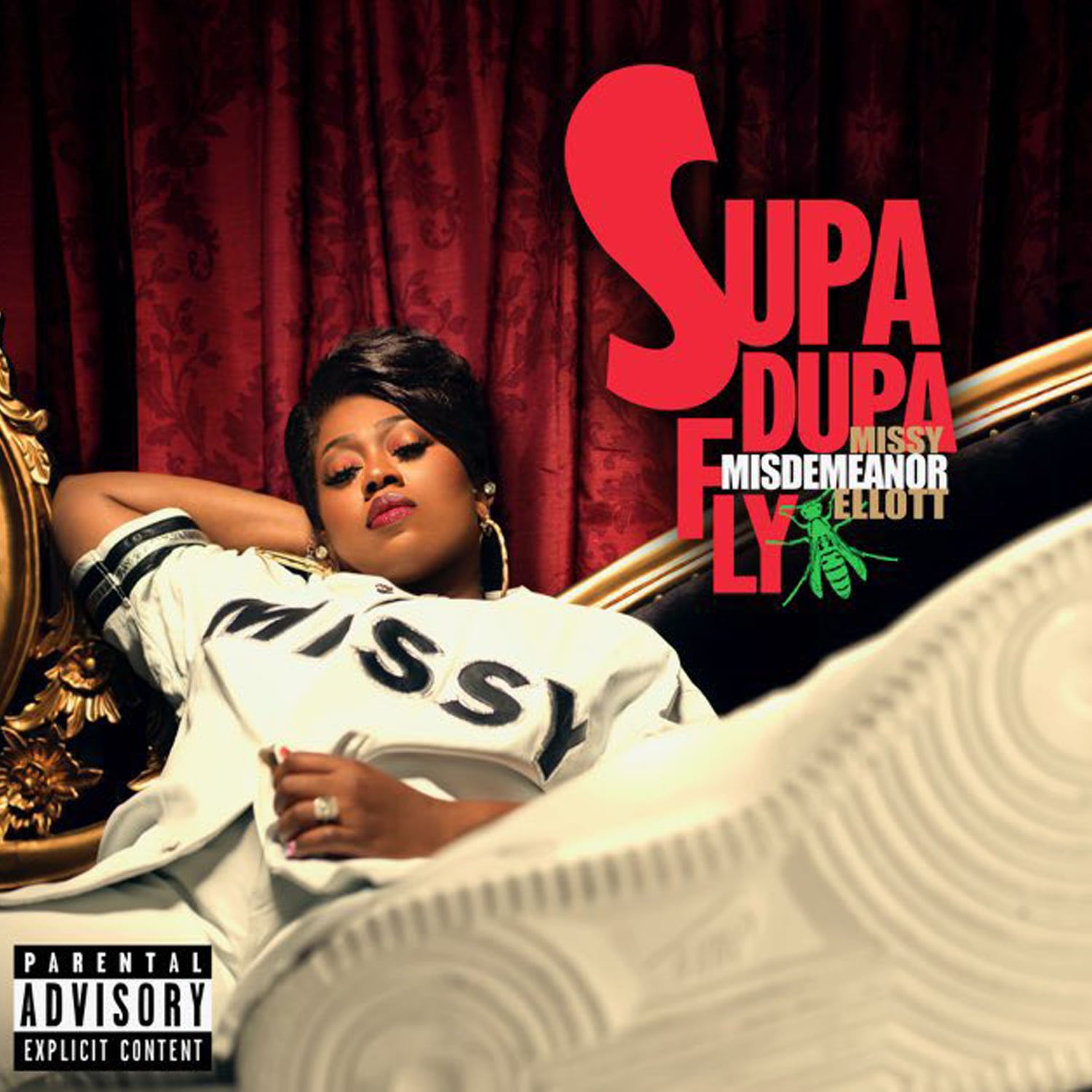

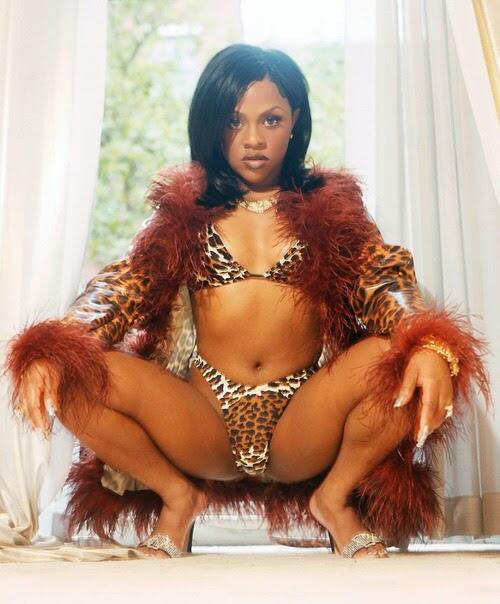





Nessun commento:
Posta un commento